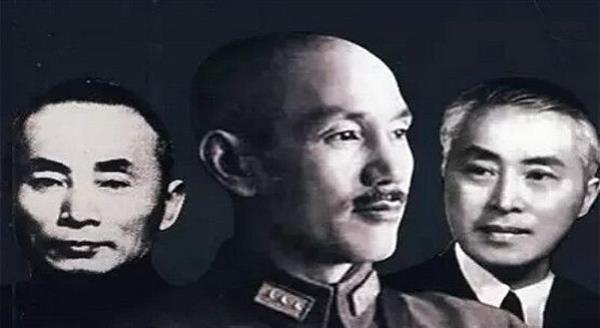Speaking of spy dramas, it is natural to be inseparable from the two major Kuomintang secret service agencies of "military unification" and "central unification", but I believe that many people do not know the difference between these two major institutions.

The Origin of Military Unification and Central Unification:
The full name of "Military Unification" is "Investigation and Statistics Bureau of the Military Commission of the National Government", formerly known as the Secret Investigation Group of the Military Commission of the National Government (established in 1927), which is subordinate to the Military Committee of the Kuomintang.
In 1931, after the "918" incident, Chiang Kai-shek used The Huangpu students to form the Revival Society (Blue Jacket Society) with the military as the main body, and the Revival Society set up a secret service office engaged in espionage activities (The Revival Society's Other Movement Office), with Dai Kasa as the director.
After the outbreak of the War of Resistance Against Japanese Aggression in 1937, the Fuxing Society's Special Mobilization Office was incorporated into the Secret Investigation Group of the Military Commission of the Nationalist Government to establish the Military Command Bureau, with Dai Kasa as deputy director.
The full name of "Central Unification" is "Investigation and Statistics Bureau of the Central Executive Committee of the Kuomintang of China", formerly known as the Party Affairs Investigation Section of the Organization Department of the Kuomintang Central Committee (established in 1928), which is subordinate to the Organization Department of the Kuomintang.
Scope of work of the Military Command and the Central Command:
Military Command Duties: Work in military intelligence
The military command is subordinate to the attendant office of the Military Commission, which is mainly responsible for military intelligence work and is directly responsible to Chiang Kai-shek. Military command
It is necessary to connect with the Intelligence Section of the Second Department of the Military Command Department on a daily basis. In 1945, the military was merged into the Secrecy Bureau of the Ministry of National Defense.
Responsibilities of the Central Committee: Party affairs investigation work
The Central Command, which is subordinate to the Second Attendant Office of the Military Commission, is mainly responsible for internal investigations within the Kuomintang party, mainly targeting the Communist Party and the personnel of the Wang puppet regime. Government organs at all levels, education departments, and the press and publication system have set up intelligence networks. The Central Command is mainly responsible for the administrative aspects, and the institution connected within the army is the Political Department of the Nationalist Army.
Note: The Central Unification was originally subordinate to the Kuomintang Organization Department, so the Central Unification is related to the appointment and dismissal of military and political personnel within the Kuomintang. Because Chen Lifu is in charge of the second office of the attendant room (inner-party investigation), and Chen Guofu is responsible for the third division of the attendant room (personnel appointment), there is a saying that "the Jiang family dynasty, the Chen family party".
The power of Dai Kasa, the head of the Military Command
The committee's attendant office is responsible for the military aspect, while the Military Command Bureau is only the intelligence work in the military, and the level of the Military Command Bureau is only the level of the main division, so in 1944, Dai Kasa was promoted to the director of the Military Command, and Dai Kasa's official rank was major general, so the outside world only called Dai Kasa as the director. Dai Kasa also served as the director of the Wartime Cargo Transportation Administration of the Ministry of Finance, which was only at the level of a main department.
Because Dai Kasa was a person close to Chiang Kai-shek and could make small reports, others did not dare to offend him. In the eyes of Li Zongren, Yan Xishan, and others, Dai Kasa was just a dog of Chiang Kai-shek, and there was no need to give him face at all. Therefore, after the victory of the War of Resistance, Dai Kasa wanted to leave the military command and want to become a deputy commander of the Navy. Dai Kasa's rights are related to Chiang Kai-shek's power, and those who Chiang Kai-shek cannot control, Dai Kasa can't afford to provoke.
The relationship between military command and the Communist Party
The main period of existence of military unification was the period of the War of Resistance against Japanese Aggression in which the Kuomintang and the Communists cooperated, and the military unification was usually active in enemy-occupied areas, and its main activities were military intelligence, usually in cooperation with underground parties. As for the military command's grasp of the Communist Party's pure film and television dramas, and grasping the Communist Party is a matter of the Central Unification, the Military Unification has no right to do it at all, even if it catches people, it must also be handed over to the Central Unification.
The issue of dress code for military and central unification
Military commanders are active military personnel, and the official uniform is the uniform of the national army and wears a military rank
The daily formal office attire of the central unification personnel is usually Zhongshan clothing wearing the Kuomintang party emblem.
Fanwai: In film and television dramas, both the military command and the central command wear a black trench coat, which is the task dress of the central command and the military command when performing the field shooting task of Hengdian.